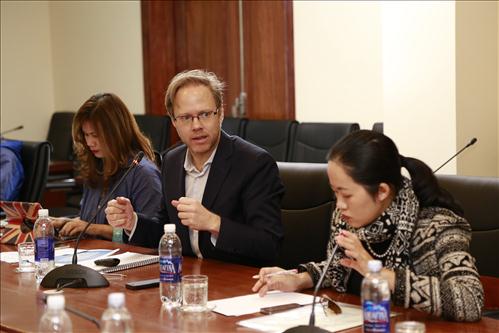
The seminar was attended by many experts in journalism and media, including: Mr. Timothy Stoker Large (representative of Thomson Reuters, Director of the "Journalism and Media" program, Thomson Reuters Foundation, journalist, editor, lecturer and media consultant), Mr. Le Quoc Minh (Editor-in-Chief of Vietnam Plus), Mr. Cao Hoang Nam (Coordinator of the Internet and Society Research Program - VPIS), Dr. Pham Hai Chung (Co-Head of the Internet and Media Committee, Internet and Society Research Program - VPIS), Dr. Phan Thuy Tram (New Women's Newspaper), Mr. Nguyen Hung Son (Deputy Editor-in-Chief of Today Newspaper), Mr. Truong Hoang Long (Editorial Secretary of Tien Phong Newspaper)...
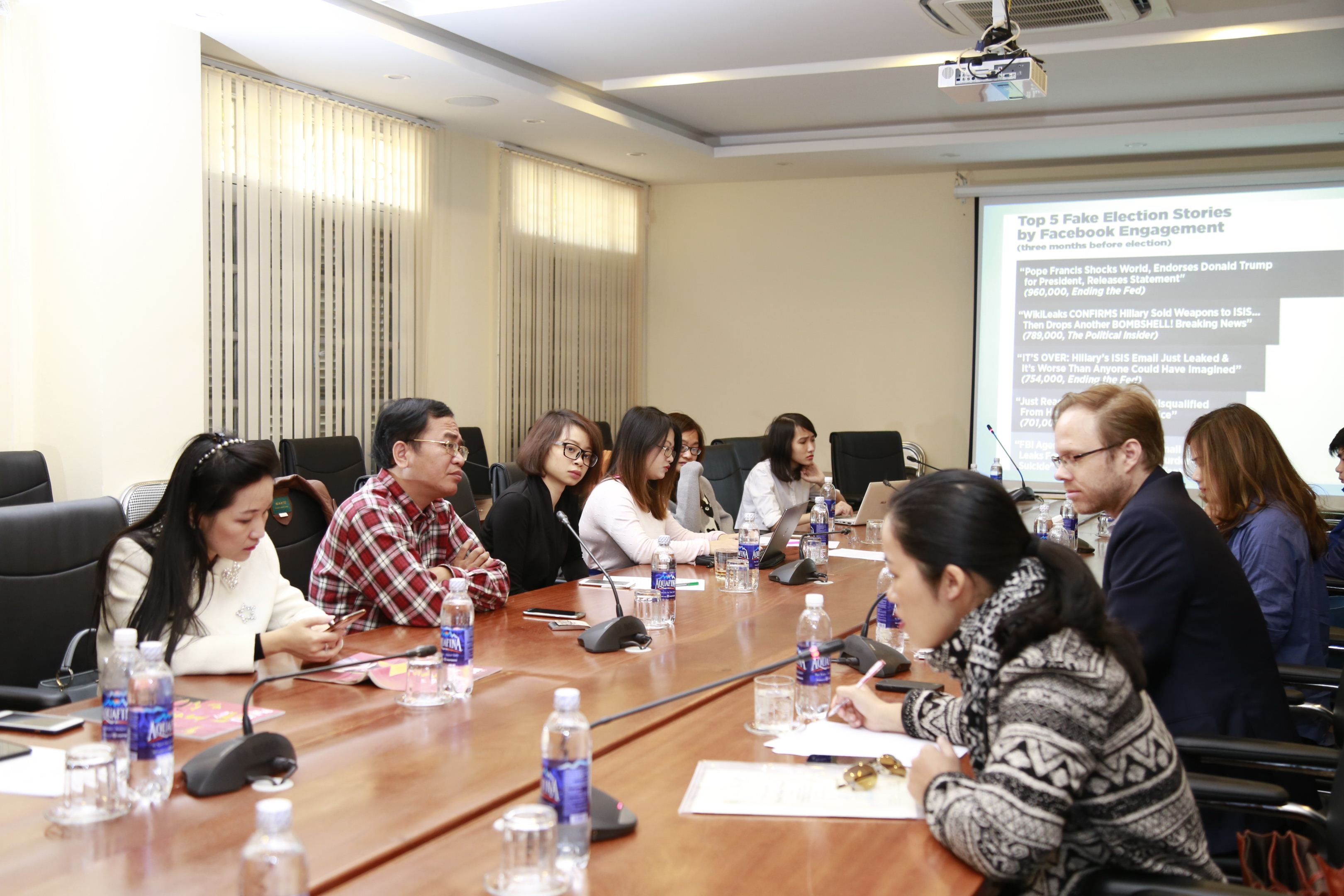
At the seminar, the participants focused on clarifying pressing issues related to the role of journalism in providing transparent and truthful information to readers; how to select accurate information; and how to maintain journalistic ethics under the pressure of the information race on social media.
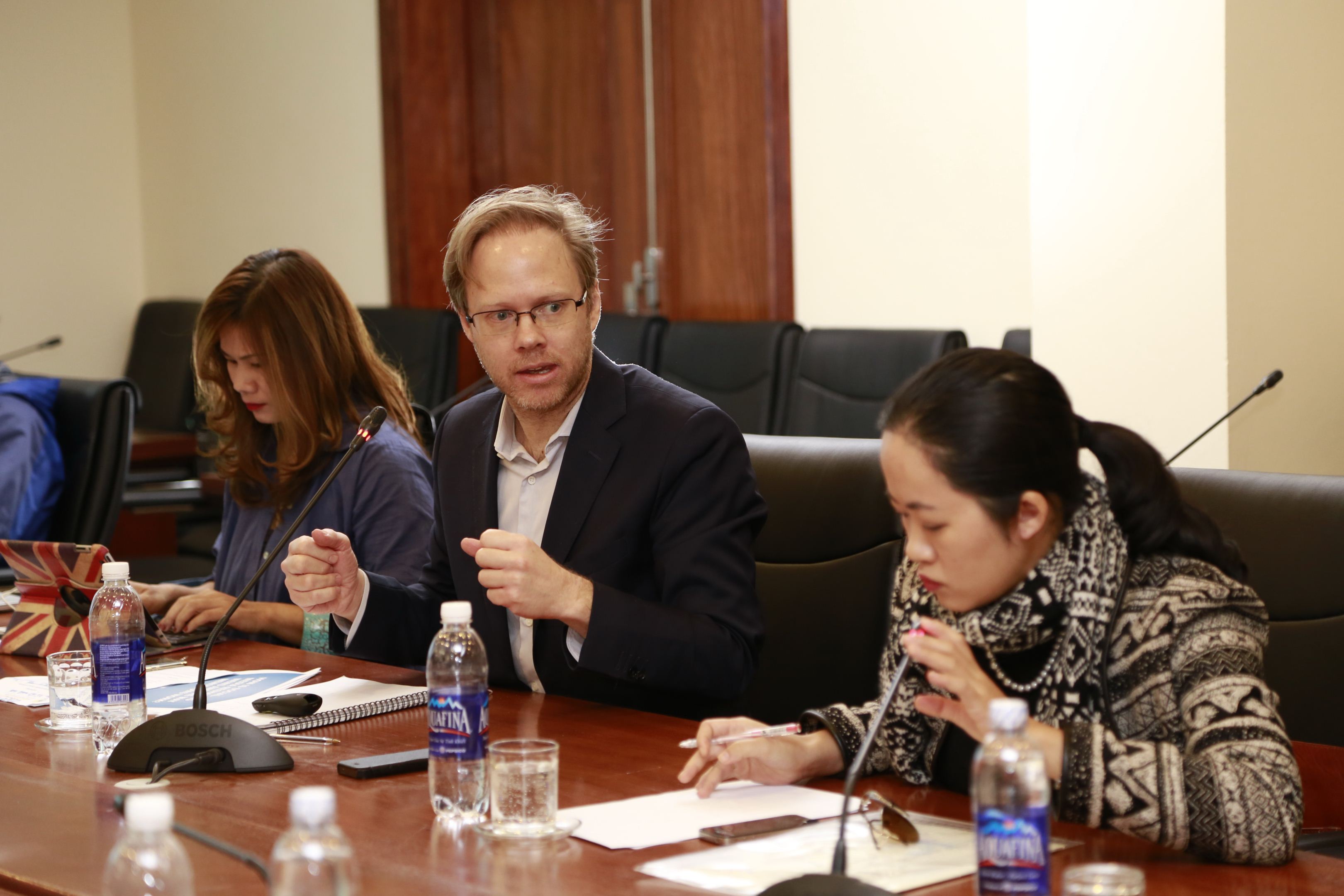
In the first session of the seminar, Mr. Timothy Stoker Large provided an overview of global digital news through the 2016 Digital News Report by the Reuters Institute. The report also compared the situation in Vietnam and predicted future trends for the global media landscape. The second session focused on the reality of fake news in Vietnam, feasible solutions to mitigate its spread, and the necessity of a Code of Conduct for social media in Vietnam.
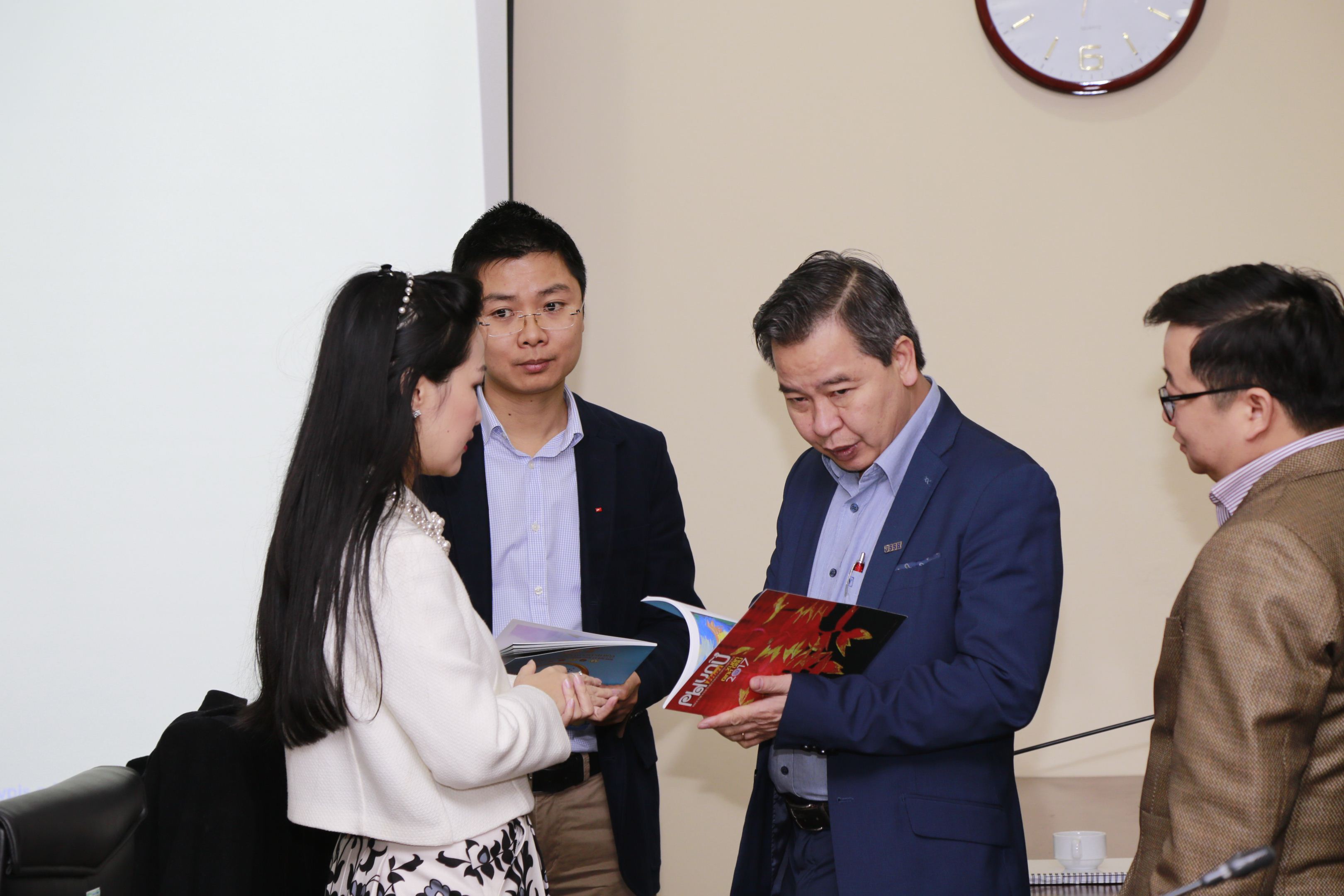
Professor Pham Quang Minh - Rector of the University of Social Sciences and Humanities, along with other delegates at the seminar.
The 2016 Digital News Report affirmed the position of social media, specifically Facebook and YouTube, as the primary information platform in the community. In addition, Mr. Timothy presented a series of trends for 2017 at the seminar. These included: the imminent challenges facing global democracy in the face of the rapid development of information technology, specifically the increasingly important role of Artificial Intelligence; and the deepening conflict between traditional and new media. Mr. Timothy also noted that the rapid growth of social media has contributed to the spread and increased influence of fake news in the community. Furthermore, a highlight of the first session of the seminar was that many speakers and representatives from various organizations recognized that the rapid growth of fake news, conversely, could play a crucial role in affirming the importance of traditional media.
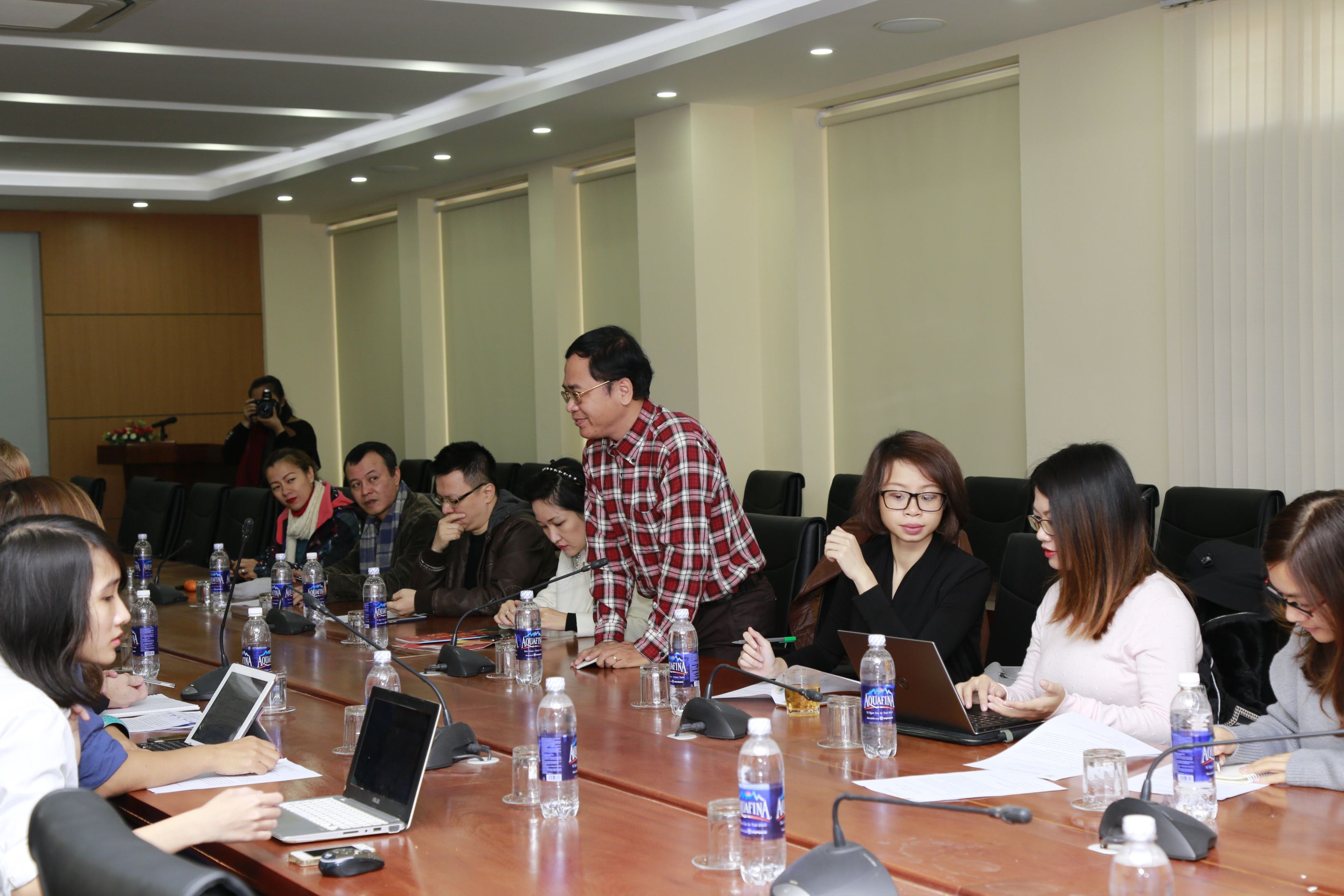
Focusing on analyzing the role of journalists in the face of this situation, Mr. Le Quoc Minh offered many noteworthy analyses and opinions. According to him, fake news is a phenomenon that has existed for a long time in society, now supported by social networks, allowing it to spread widely and have a profound impact. The purposes behind using fake news are numerous, but ultimately, it's about profiting through advertising. Mr. Minh also stated that the current situation is not just alarming; we are truly in a war against fake news. However, in this war, the role of journalists has not been adequately highlighted. Mr. Minh predicted that in the future, journalists will play a crucial role in preventing the spread of fake news. Specifically, improving professional ethics, fully understanding the changing information consumption habits of the public, and beginning the necessary preparations for a new mode of operation for journalism will be key challenges for journalists in the fight against fake news.
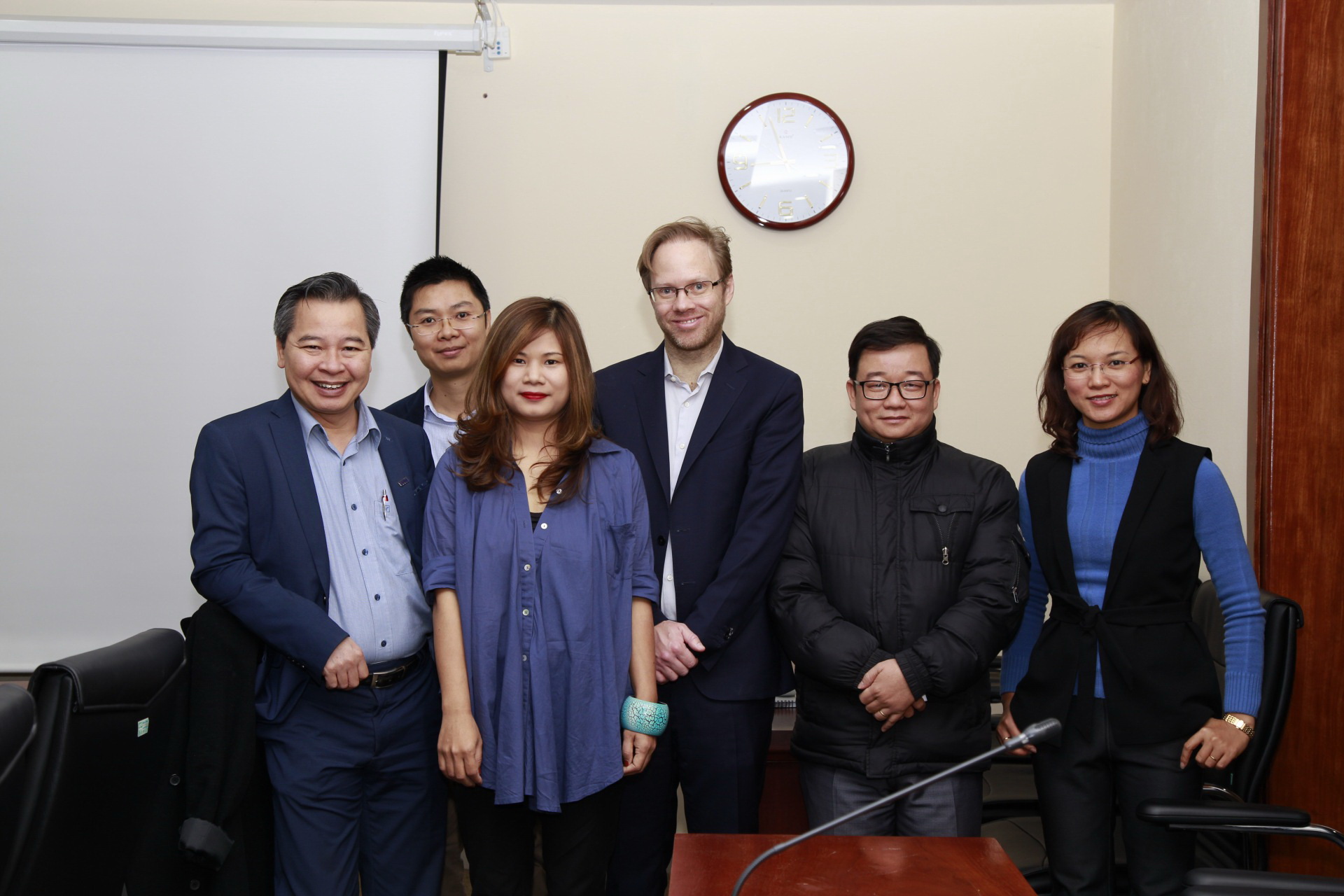
Professor Pham Quang Minh and other delegates at the seminar.
During the seminar, many representatives from businesses, research centers, and training institutions asked the speakers numerous questions regarding the development of a Code of Conduct for social media in Vietnam. The opinions expressed unanimously agreed that, alongside the development of a fact-checking service, establishing a code of conduct for social media in Vietnam is necessary, not only for managing fake news but also as a useful framework for building a better online environment in Vietnam.
| Internet and Society Research ProgramThe program of the University of Social Sciences and Humanities, Vietnam National University, Hanoi, is an interdisciplinary research program involving Sociology, Law, Journalism & Communication, Economics, Linguistics, Psychology, Anthropology, Political Science, and Management Science to shed light on the impacts of the Internet on various aspects of life and society, and the reciprocal impacts of society on shaping the future development of the Internet from a social science and humanities perspective. |
Author:Thanh Ha
Newer news
Older news